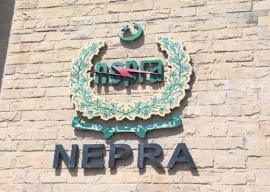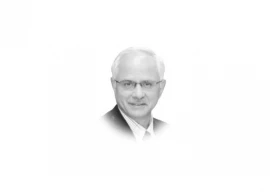
When officials from the commissioner’s office visited the non-descript structure next to the Young Men’s Christian Association building at Nila Gumbad on February 7, the walls were covered with spider webs and tyre dust.
“It was an ugly sight,” said Colonel Younis Barula, the security in-charge for Lahore in the commissioner’s office, of the city’s most iconic eatery, the Pak Tea House. Nine trucks made two or three round trips each to empty the building of fabric and tyre scraps, he added.
For the last seven years, it served as a garments warehouse and a tyre shop. Now the YMCA, with help from the government, is to soon relaunch the chai khana. They hope that with some restoration work and the addition of memorabilia dating back to the 1940s, the Pak Tea House will reclaim its place as the hub of Lahore’s intellectual life.
The Express Tribune spoke to several writers who were an integral part of the Pak Tea House scene. They said that though they were pleased at the prospect of revisiting the old haunt, they doubted that it would ever regain its lost glory.
“The Mall is not the city centre any longer,” said writer Zahid Dar, a regular at the Tea House starting in the 1950s. “The centre has shifted to Gulberg and Model Town. I doubt it will be anything like what it was before.”
Samuel Pervez, the YMCA chairman, is jubilant at the prospect of the Tea House reopening. He said though the government was refurbishing the building, it would remain under the administrative control of the YMCA. “Things can really turn around if the government sustains its interest,” he said.
“We are not looking for an opportunity to make profits,” he said. “We want it reopened because it has a reputation which Chupaal, Jhok Faqeer and no other tea place can match.”
The new Pak Tea House will look much like the old one. “We plan to restore its plain look which merged well with the other architecture on The Mall,” said Khawaja Imran Raza, who is in charge of the project.
He said that pictures of the place collected from the 1940s and 1950s would be put up as well as a gallery of famous writer, poets and activists who had patronised the place. The tea will be very reasonably priced, he said, and available in a traditional half set or full set.
A few days ago, Raza met with MNA Hamza Shahbaz, writers Ataul Haq Qasmi (also chairman of the Lahore Arts Council), Intezaar Hussain and Iraj Mubarak, architect Nayyar Ali Dada and musician Hamid Ali Khan to discuss the restoration. “The old circle included artists, musicians, poets and writers so we wanted their input,” he said.
He said that a structural stability report indicated that the building’s condition was okay.
The Pak Tea House also closed in 2000 and reopened a year later, before closing again in 2005. Writer Amjad Tufail, a regular there in the 1980s and 1990s, said that the place was dealt a major blow in 1996 when the YMCA closed its hostel, depriving it of hundreds of regular customers. “The students in the hostel were the big customers. It could not have survived on selling tea to writers,” he said.
The Tea House’s reputation also suffered when it lost longstanding employees like Sharif Banjaara, a cook for over 50 years who passed away in the late 1990s, and Elahi Bakhsh, a tea server since Partition who moved to Multan. “It did not feel the same after these people left,” he said.
Intezar Hussain said the place had, in the 1990s, gradually lost the good atmosphere that came from having a well-established set of clientele and staff who knew each other and were comfortable with each other.
Tufail was hopeful that the Pak Tea House would be able to regain some of its lost glory as all the writers and intellectuals who used to visit it would return. “Nowhere else can take its place,” he said.
Hussain, who is in his 80s, said he was too old to become a regular visitor, but would definitely visit it if it were reopened.
In an Express News documentary Aks – Haqaiq Zindagi Kay journalist and writer Hameed Akhter, who died in October 2011, said that he did not think the Pak Tea House could ever be the same as it was in the 20th Century.
“You cannot plan to create such spots,” he said. “They are a product of the literati of a certain era. The literati of Lahore are now orphans. They await a new beginning.”
Published in The Express Tribune, February 26th, 2012.
COMMENTS (4)
Comments are moderated and generally will be posted if they are on-topic and not abusive.
For more information, please see our Comments FAQ




1722493456-0/rain-karachi67-(1)1722493456-0-270x192.webp)
1722445065-0/WhatsApp-Image-2024-07-31-at-9-52-38-PM-(1)1722445065-0-270x192.webp)








@Acorn Guts: Perhaps instead of operating as a commercial restaurant, PTH can be restored as tourist site, with tea, etc on order only. It was not the venue but the people who were there: they are either dead or dying, or pushed out of the profession in society which has stopped reading.
@Acron Guts
Ditto! It's sad, very sad.
its a reflection of the degenerative society and a country that is bound to doom.. lahore in my opinion has lost its cultural harmony. Its a dying city, with social fabric destroyed by rabid forces of mullahs..
what made Pak Tea house were the patrons .. bringing back the venue without the spirit will all be in vain.